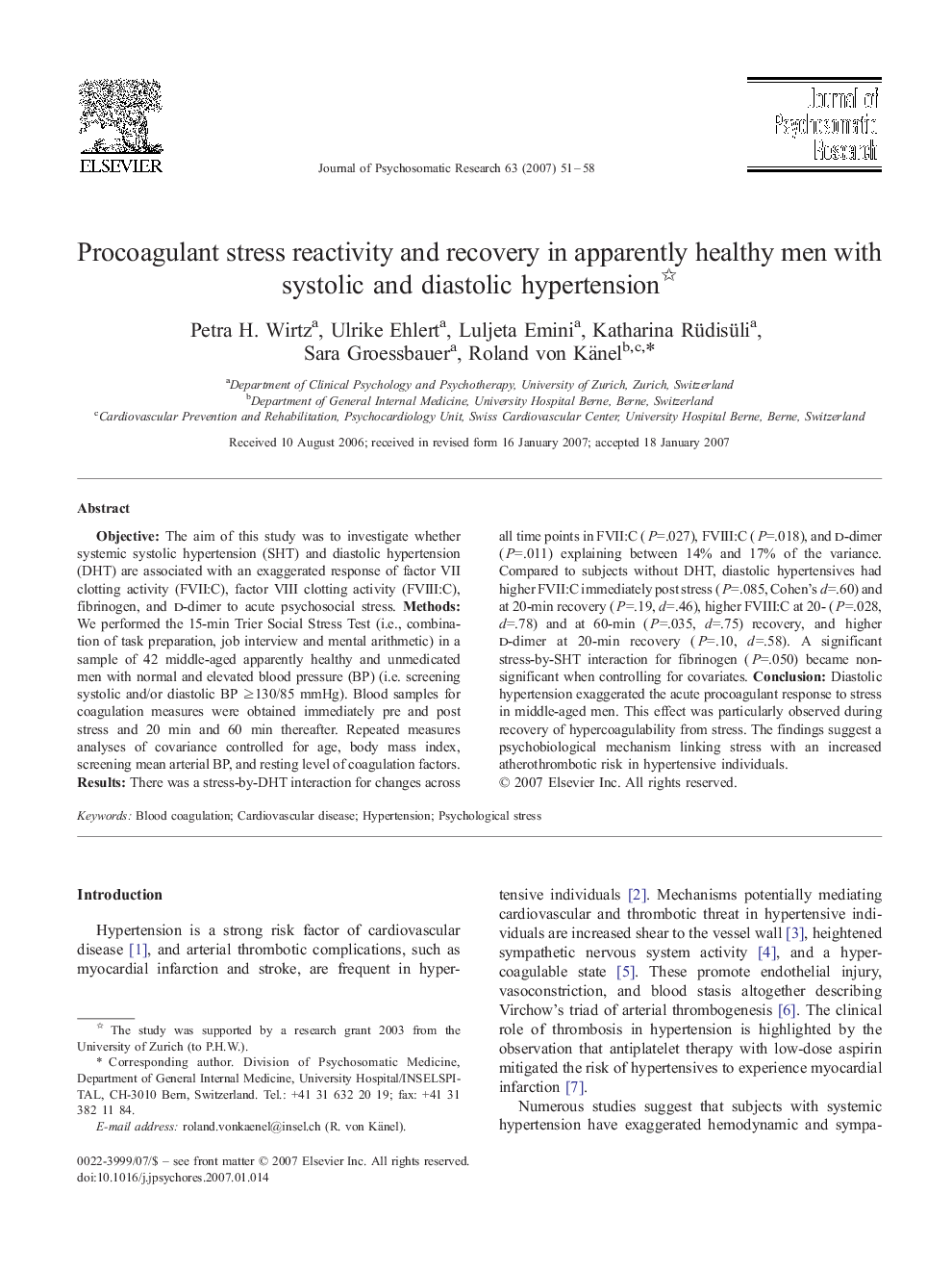| Article ID | Journal | Published Year | Pages | File Type |
|---|---|---|---|---|
| 950586 | Journal of Psychosomatic Research | 2007 | 8 Pages |
ObjectiveThe aim of this study was to investigate whether systemic systolic hypertension (SHT) and diastolic hypertension (DHT) are associated with an exaggerated response of factor VII clotting activity (FVII:C), factor VIII clotting activity (FVIII:C), fibrinogen, and d-dimer to acute psychosocial stress.MethodsWe performed the 15-min Trier Social Stress Test (i.e., combination of task preparation, job interview and mental arithmetic) in a sample of 42 middle-aged apparently healthy and unmedicated men with normal and elevated blood pressure (BP) (i.e. screening systolic and/or diastolic BP ≥130/85 mmHg). Blood samples for coagulation measures were obtained immediately pre and post stress and 20 min and 60 min thereafter. Repeated measures analyses of covariance controlled for age, body mass index, screening mean arterial BP, and resting level of coagulation factors.ResultsThere was a stress-by-DHT interaction for changes across all time points in FVII:C (P=.027), FVIII:C (P=.018), and d-dimer (P=.011) explaining between 14% and 17% of the variance. Compared to subjects without DHT, diastolic hypertensives had higher FVII:C immediately post stress (P=.085, Cohen's d=.60) and at 20-min recovery (P=.19, d=.46), higher FVIII:C at 20- (P=.028, d=.78) and at 60-min (P=.035, d=.75) recovery, and higher d-dimer at 20-min recovery (P=.10, d=.58). A significant stress-by-SHT interaction for fibrinogen (P=.050) became nonsignificant when controlling for covariates.ConclusionDiastolic hypertension exaggerated the acute procoagulant response to stress in middle-aged men. This effect was particularly observed during recovery of hypercoagulability from stress. The findings suggest a psychobiological mechanism linking stress with an increased atherothrombotic risk in hypertensive individuals.
